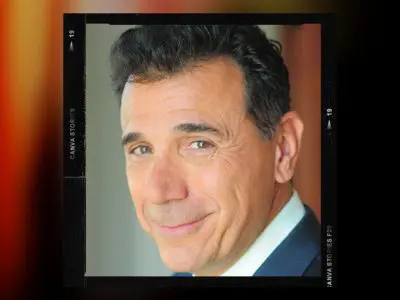Peer to Peer Recognition: Recipes for Success
w/ Christie Hoffman
Use the buttons above to listen now.
Transcript - Peer to Peer Recognition: Recipes for Success
Rich: On this episode of Team Building Saves the World.
Christie: I think recognition is one of those things. It’s like potato chips, you, you can’t have too many, right? Just, just, and as the manager, it’s on you to use those one-on-ones to learn about each unique team member. So the earlier and more opportunities you have to build their confidence and be like, come on, it’s okay.
You’re with us now. This is good. This was a good decision. I actually think this is a very specific call out to, okay. To tell the people who listen. So,
Here we go. I got a couple.
We got four.
Rich: Okay.
Hello team. It’s me, your old friend Rich Rininsland host of team building Saves the world. The show where I speak to thought leaders from around. On the world discussing variable strategies and tools to help you and your team build a better work environment. And today, let’s talk about you and me as we discuss peer recognition with people first advocate and engagement expert Christie Hoffman.
But first, I need to share some love with my support as a team bonding. If your team is ready to experience teamwork with the power of Play, to visit team bonding.com to learn more. Now, team, join me welcoming my guest host of the entertaining and informative podcast Flip Flops and people ops Christie Hoffman.
Christie Hello. Hello.
Thank you so much for coming on and joining us. How are you today?
Christie: I’m great. Thank you for having me. I feel like I’m getting ready to run onto the N B A court in my legs sweating. That was like so much fun.
Rich: Uh, once again, uh, let me apologize to you and uh, to my team out there. My voice is a little haggard from some recent illness.
But we’re gonna get through this together, you and me. Um, I love it. Let’s do it. Great. First thing I want to do is, as I always do, can you start out by telling me a little bit about yourself or my team, uh, including how it is you got into this aspect of the work?
Christie: Sure. So I host, like you said, the, the podcast flip flops and people ops and maybe just as an ex disgruntled employee who worked for lots of companies that just like, there was just this general feeling of yuck that I talk about on my show and it’s disengagement now that I researched the topic and you know, have talked to other thought leaders like you.
Mm-hmm. Just to compare notes. And it’s, it’s like ev, this is not unique. Every company is struggling throughout the test of time to have a dis have an engaged workforce and figure out what drives productivity, why are people quitting, why can’t we hit our revenue targets? So I work for this great company called Ping Board.
Because I did have a great employee experience, and so I was able to contrast as an employee, like what was different about this, and really just see that there’s a lot of pressure on the HR side of the business to drive engagement, but they often don’t know how. Don’t have the right tools, don’t have the time, don’t have the budget, all this so.
I just, I really wanted to help spread the word with my research and my conversations with people in that role who are struggling that, no, you’re not crazy. Driving engagement is hard, but it’s not impossible. You just have to have the right strategies and tactics, and that’s where my show comes in to help.
Rich: Yeah. What made you decide to go with Podcast Route?
Christie: I probably just, I wanted a career in radio and my lovely father was like, That’s not necessarily lucrative and you have to get up really early. And I was like, ok, fine. So maybe this was just scratching that itch that I always wanted to scratch, but I, I call the podcast now, like my, my own little diary, my out loud audio diary.
And my listeners have gotten very close with me and just, you know, my story inside and outside of work. So it’s like therapy.
Rich: So let’s talk about peer recognition cuz a lot of the times, the past few years on this podcast, whenever we’re talking about the problems that develop in the workplace, a lot of my guests all say it’s from management down, but today I want to talk about peer recognition itself.
First of, can you mm-hmm. Just describe for us what is peer recognition in regard to the workplace?
Christie: Yes. So peer recognition is, I just did a webinar on this, which I’d love to share with your audience too. If anyone wants to go really deep, but pier, you know, it was your coworker. Sure. Someone you work with.
Recognition is not just saying thank you. Recognition is recognizing the talents, skills, strengths, outputs. Or contributions of someone. So peer recognition is recognizing all of that with someone you work with. Something incredible they did. Something they did to go above and beyond something they’re great at.
I mean, peer recognition is often kind of bucketed as this nice to have, oh, just make sure to tell people thank you. Mm-hmm. But that there’s so much more to it and there’s a recipe to do it correctly. There’s a way to give meaningful recognition that needs to be trained to employees, but pure recognition is a really powerful way to drive engagement across.
Teams not just top down, like you said, management down.
Rich: Right? So let’s get into what’s the, what’s the recipe? I mean, how do we make this successful?
Christie: Yeah. So there are five aspects of giving meaningful recognition. Okay? So I’ll give you two examples, okay? Mm-hmm. The first example, if I were to just say, rich, hey, good job on that project.
You’re like, thanks, that’s my job, as opposed to. Listen to this. Mm. I want to thank Rich for his exceptional teamwork and problem solving skills. During our recent project, he went above and beyond to collaborate with customers and team members, and he actively listened to different perspectives and proposed new solutions that improved our final deliverable.
His dedication and contributions had a profound impact on the success of the project, and his positive attitude and willingness to support others was truly inspiring. I mean, I. Doesn’t that feel a lot better?
Rich: I know, yeah. I was about to say, I know this is a complete example that you’re giving us here, but I feel much better.
Christie: I feel like, I feel like, yeah, so there’s, there’s a recipe to that, so, yeah. And you, some people might hear that and be like, well, I can’t write like that. Well, guess what? I’m not a long form writer either, and that’s why we have chat g p t. But that’s another episode. We’ll talk about that another time. But the five things, the, the things that were mentioned there, Technically it’s five components.
One of them isn’t mentioned. That’s a teaser in my, my webinar, but it hit on timeliness, making sure the recipient feels valued in the moment. So like you have to do it pretty soon after someone does something great. Right? Specificity, that’s the word you have to say slow. So you say it correctly. You highlight the particular actions or behaviors, and as many of them as there are, you keep naming them until you’ve named them all.
Mm. Visibility is when an A company needs to make sure this is celebrated publicly. So that’s where tools like my company, ping board come in. Okay. Then impacts how the person made a difference. And then authenticity. It has to be genuine and sincere. And that first example I gave you just was very flat, very like, Just, I have to say thank you because otherwise I’ll feel guilty if I don’t.
But that second example just really touched on the different aspects of, of saying thank you in a way that makes you wanna do it again. Lights up your brain.
Rich: Well, let’s look at it. If we can just start from the negative and, and, and we’ll build back to the positive. What does, uh, the bad form actually do?
Even a, a small amount of recognition has to be something. So yeah, still it, can it be detrimental still? It’s still just to give that little, the, the minutiae. Or, or, yeah.
Christie: I think it could cause a little bit of even resentment. There’s psychology behind this. When, okay, when the, when the aspects are hit on correctly, it releases dopamine and oxytocin in much higher amounts in the brain.
So, Dopamine boost your satisfaction and motivation to do something. Again, it’s like the ma Pavlov’s dogs do it again. Um, oxytocin is the love hormone, which in the workplace is like connection. Everyone’s talking about connection. What does that mean? It’s, it’s releasing oxytocin in the brain. So if I tell you thank you mm-hmm.
You feel seen, you get a little bit of that. But when you give recognition correctly, it’s like, Dopamine and oxytocin. 20 x, you’re like, well, I, I really made an impact on this person and I wanna do it again because this feels good.
Rich: And what are the methods for actually making, because from what you just showed me, this is not something you’re sending me in an email.
This is a blast that’s going out to everyone. How can I do that best for one of my team
Christie: members? So it really needs to be baked into your company’s culture. So, Okay, so your culture is the belief systems and the, the actions that get repeated. What is the DNA and the, the motions that your company goes through?
Right. And like I said in the beginning, HR and people ops, individuals, like those leaders are busy, so they don’t have time to go check around and, and say, have you given recognition recently? Yeah. Have you given recognition recently? So, There needs to be budget to have tools, again, like ping board, but it doesn’t have to, like any tool can, there’s lots of tools that can do this, but it needs to be a tool that’s easy to use.
And then there are things you can do like in your all hands, in your town hall, in your, whatever your all company meeting is. Mm-hmm. You always take the time to celebrate it publicly. And make sure that you, you know, you can screenshot recent recognition and say, look at all the great work you all are doing for each other.
Like, this is why we’re a people first company. We exist because of you. This gives you a chance to drive engagement and make everyone feel more connected and, and part of something bigger than just them when they see, right? Wow. People across teams are helping each other. I have no idea what that project is, but that’s not the point.
The point is I see people helping each other out. I see people. Doing right by one another at this company. I like this company, I wanna stay here. I want my chance to get recognition to be put up on the screen. Mm. So it needs to be part of. How you all communicate with each other and it really needs, that’s the part that needs to come from the CEO top down.
You know, the managers are like dialed into giving recognition too and celebrating it on their teams.
Rich: Right. Well you started digging into it, uh, but can we get a little bit deeper in what the relationship between the peer recognition and team performances and how Sure. So, and how to make sure that those are building each other up.
Christie: Definitely. So I had some data from my webinar. I, in my research I saw that only two out of 10 employees really agree that they’re getting the right amount of recognition at all. Okay. Which is pretty stark. So, And 77% of people polled in this other research I found said they would be more productive if they were recognized more frequently.
Mm. So what I gathered from that was, you know what I ex took from that? Because on my show I use a lot of goofy metaphors to help drive my points home. It’s like your employees are not robots. I can use chat G p T all day long and never thank it. It’s not sentian. It doesn’t care your people when they don’t.
Everett feels seen and heard and valued. It’s kind of like, what’s the point? I’m just gonna crank out work and you’re not, you know, it just, it affects the whole, what’s the point? That’s that general feeling of yuck. That’s disengagement. Yeah. That’s just feeling like, I could do this anywhere. Maybe I can go find another company that cares about me.
So productivity and feeling connected on a team all comes back to how do we treat each other? How do we celebrate each other? How do we interact with each other in a way that, like we spend a lot of time at work, we want it to be enjoyable.
Rich: Have you come across any examples of companies that thought that this was exactly what they were doing, but they were getting it wrong?
And Yes. What kind of, and I want you to go into naming names, what have you, but what does wrong look like?
Christie: Wrong looks like only top-down recognition. Okay. Which is where only managers are giving recognition, because that could be seen as, you know, if a manager doesn’t see something great that an employee does.
Then they won’t get the recognition right? It could be seen as this manager is favoring this person, right? So the, the solution to that is peer to peer recognition, which is where people on the same level can give each other recognition. Usually it’s the boots on the ground, the other employees working together to get the work done.
Not always the managers who are in the stratosphere overseeing, you know, where’s the team headed? Where are we going? The employees know of each other who’s doing great work. So you have to make it accessible. To every employee. Um, you need to train them on how to give meaningful recognition because some people feel a little awkward and clunky in long form writing.
So investing in like a quick workshop that you record and make available on your intranet, which you should have. Nice for onboarding for later employees, like we give recognition. This is how you give good recognition, meaningful recognition. And then companies that don’t ever really just. It’s, it’s, it’s one thing to do it, but it’s if you miss out on the easy opportunity, the softball of your all hands town hall meeting, the point of that meeting is to remind everyone why does your company exist?
Why is your team awesome? Why are all the other teams awesome? What problems are we having as a company? How are we gonna hit it head on? It’s okay. These are opportunities to do better. Also, look at how amazing you all are. So that, those are the three things I see. Companies get it wrong. It’s management down.
It’s, shoot, what was my second one? The third one was town hall. My second one was, um, not training employees how to do it correctly cuz they’re, they’re intimidated.
Rich: And you were talking about onboarding. How early can this start? Is it something that that person who’s doing their first week of the job has managed to get through onboarding quickly and Well, do we give them recognition right away?
Yes. Or do we wait till they’ve been in it for a bit?
Christie: I think recognition is one of those things that’s like potato chips, you, you can’t have too many, right? Just, just keep doling it out, baby. I just feel like, so at the end of onboarding, I think a really powerful thing for a manager to do is say, Christie just finished her onboarding.
We are so excited to have her join the team. Um, you know, during onboarding, she, you can name something specific. Mm-hmm. And you wouldn’t necessarily wanna talk about speed because onboarding is a quality thing over a speed. Some people are just really smart and fast though, and that’s how they learned.
But sure, you could say like, they worked on this project, or they, you know, they, some, some companies will do an onboarding project just to get you in the groove of things, call out something they did. They listened to 10 customer calls and like, just really, really got the. There’s something, you get what I’m saying?
You can say something specific. We’re so excited that you finished onboarding. We’re so pumped for you to join the team. Glad you’re at the company. Here’s to like kicking it off and like, here we go. I think that’s a, a good early engagement driver to make the employee feel like they picked a great company.
How often have you been told good job to the whole company that you just finished onboarding? Like that would so special. True. Yeah, and it’s easy.
Rich: Yeah, so, cause I, I, I couldn’t even imagine. I mean, uh, being a performer all of my life, as I’ve told many of my guests when they’ve come on the, going into the corporate world is what helped pay for my career.
So now I know enough about it having dipped my toe into it, you would never hear, especially back in the eighties, nineties, and early aughts about somebody who’s just been working, just started working and how ex excellent they’re doing. That was just nothing you ever heard about.
Christie: It’s a good confidence builder.
It’s really important to not give new employees imposter syndrome. And you do that by having a good onboarding experience. But building confidence early is what makes a new employee feel like, okay, good. I picked this company. Cuz think about it. They’re putting their 401k, their family’s livelihood, their benefits a lot for them has shifted.
They’re putting a lot of eggs in this, in your company’s basket. So the earlier and more opportunities you have to build their confidence and be like, come on, it’s okay. You’re with us now. This is good. This was a good decision. You’re, you’re a lot less likely to have turnover and, you know, disengagement on teams and, and more productivity.
Rich: Christie I wanna talk so much more about this. God knows there’s more of this to get into, but I need to step away and I hope you don’t mind real quick. While I tell my team out there about a company I am very proud to be a part of Team Bonding. Team Bonding was founded over 20 years ago with one simple question, how can employees have a great time while fostering strong authentic bonds between people who work together?
No matter where your company is located, team Bonding offers powerful, engaging, custom team building events designed to get the best out of your team anywhere in the world. They’ve created a catalog of innovative events using the power of play as a learning tool, and tapping into the correlation of work and play from scavenger hunt to jeopardy and so much more the team bonding of activities, be it live, virtual, or hybrid, maximize the impact of team building with an accent on fun.
To visit team bonding.com to schedule your event now. Team bonding when you want. Seriously. Fun results. And we are back with Kristy Hoffman talking about peer recognition. Kristy, I wanna ask you about team building itself as a team building facilitator. How can I come in and help with peer recognition?
Christie: Oh, so. There’s always just little like fundamental ways of when you’re doing team building, you don’t do it angry, you don’t do it cold. Mm-hmm. You don’t do it like there’s a sentiment to team building. Team building, insinuates connection, team building, insinuates, empathy, helping. You’re doing something together, you’re not doing team building to see who, who wins against each other on the team.
Team building is meant to bring everyone together, right? So there’s ways of, as you’re doing a team building exercise, like, Hey, that person just did that. Why don’t you tell ’em good job? Or, Hey, that person just really went out of their comfort zone. I’m imagining people are on a ropes course for some reason, but that could be a variety of things.
But, um, you know, Leading by example as the one facilitating the team building or, or guiding them through that. Like, Hey, good job. Hey guys, remember, say good job. I think sometimes people need to be nudged, especially in a team building exercise. People might be a little outta their comfort zone, so they might need to be reminded like, we’re all doing this together.
Isn’t this fun? Like, support each other, celebrate each other.
Rich: Other than just recognizing your peers, uh, are there any other ways that team members can treat their teams on a regular basis? Yeah,
Christie: I think high functioning teams a have an excellent manager who holds regular one-on-ones, but again, that’s a deeper topic, right?
Psychological safety on teams comes from the manager. That’s where you can have team meetings or discussions with each other where it’s like, Hey guys, I’m actually not on track to hit my goals and I need a safe space to tell you that. And mm-hmm. Seek support in like, ideation around, like, can someone help me think through some things I might not have considered or I, I need help.
And so I, I think I. High functioning teams have safety in, in not just celebrating their wins and saying, great job, but saying I’m failing and I know if I had the right support from the team, or like, I just need a safe space to think through this and brainstorm those moments. Can bring a team together just as much in, in being more real.
Just psychological safety is, yeah, it’s hard to create, but once it’s there, It’s there and teams are very high functioning and no team is accomplishing all the things all the time. That’s impossible, right? That’s maybe at Apple or Google, but maybe even not there. Teams need. Teams need to be like supportive.
Even in the bad moments, I think is the Too long didn’t read of what, what I’m trying to say.
Rich: Yeah. I’ve dealt with some of that Google ai. They’re not hitting the ground running on All Matters. No Chat for life. But let’s talk about that management though. Because I come from a generation where, yeah, we always heard it from the manager, but hearing this sounds wonderful, but how as a manager can I make sure that my team is free to do this and has the tools that have the tools that they need to actually create those peer recognition opportunities.
Christie: So I think, let’s go back to culture. And remember, your culture is your values and belief systems and, and how you live and breathe. Those are actions that are repeated and rituals that are just baked into your company’s d n a. Mm-hmm. Your, your employees need to know what your values are as a company, and they need to not just be words.
They need to be a framework by which employees make decisions, how to treat each other, how to treat customers, how to make decisions on projects, how to, you know, make, do we do quality or do we do speed? That’s something that needs to be baked into your. Your values and then on a team, it’s on the manager to really in tough moments or just moments of decision in front of everyone, be like, Hey guys, let’s refer to our values.
It needs to be driven home again by that, that leader on that team, because 70% of the employee experience according to Gallup is the relationship between the employees and their manager. So when they see that like they’re fearless leader, Not balking at like, we have to make a tough decision, or there seems to be some conflict in this moment right now, what’s about to happen?
Mm. The the psychological safety part comes from the, the manager being well trained in their soft skills and communication and living, breathing the values of the company and bringing it down to the team. Be like, remember we have a framework for this. Remember this is what we do as a company, and that takes out some of the.
The guesswork of like, what’s gonna happen in this moment, or like, I don’t know what decision to make, or, I’m too scared to tell my manager that I don’t know, like it the, it’s on the manager to. Lead by example. Mm-hmm. And but the problem is a lot of managers don’t get management training, but they’re on the hook for such a big part of the employee experience.
A lot of managers were just promoted. Right. They were the high performer. Right. And, and that’s not always a good thing, so.
Rich: Well what about, um, are there programs for managers like this that you can introduce them to or any other methodologies that you can recommend for them?
Christie: There are so many great books, which I’m gonna roll away from you for a second.
Sure. Because I actually think this is a very specific call out to Okay. To tell the people who listen, so, so
here we go. I got a couple, we
got four. Okay. In no particular order. So Sure. Like first of all, YouTube, there’s a great. Um, management coach named business coach Eric. I met him on TikTok. He’s been on my show.
He just gives quick snippets if, if your audience is on TikTok or Instagram or LinkedIn at business, coach Eric, he’s a good friend of mine. Nice. Find other. There’s content on YouTube. You know, you can pay someone to coach you, of course. Mm-hmm. But a lot of managers default to books because that’s really the best.
That’s what’s available. So I’m gonna give you four book recommendations. The first one is 101 tough conversations to have with employees. This is not necessarily one that you read cover to cover. It’s kind of like a uhoh. Someone’s arguing about their salary to me right now. How do I, you know, it’s one of those, yeah.
Radical candor. This is an awesome one. This, this one is the framework to help your employees communicate. Sorry, the people on your team communicate effectively, but kindly, but efficiently. Okay? So you’re not aggressive, but you’re not being like, well, I don’t know. I don’t wanna hurt your feelings. This is a good one to even read with your employees, depending on what kind of company.
How highly effective people speak because you need to be seen as a respected, capable manager. Right? And perfect phrases for managers and supervisors. This is another one of those, like, what do I do when? And this one is very short. This is one that’s worth just reading through one or two times over coffee, just so that you can expose your mind to some thought exercises.
So you’re ready.
Rich: Now as that manager, let us say that I didn’t read the books, but I’m calling out to someone like yourself just to solve this problem for me. Somebody said that peer recognition is, is something that’s gonna turn my team around. I’ve had turnover upon turnover when it comes to employees for the last several years, so sell me on it.
How can you take that old school manager who just can’t get his head into this game? Yeah, into the game.
Christie: So I would tell he or she manager that you are the gatekeeper to a productive or non-productive team. And there are lots of contributing factors that you are completely in control of. You’re frustrated at the lack of productivity.
You’re frustrated at the toxic triangulation and the drama. You’re tired of, like the lack of direction. You can fix all that. When you get organized, your team gets organized. When you. Lead by example with the recognition. And you might need to remind employees every once in a while, like, Hey, you need to tell each other good job because you guys are doing great work.
You should be having some kind of recurring team meeting that has an agenda, right? And like a, a purpose that it exists. Nothing’s worse than a wandering meeting, but maybe there’s like a weekly standup that’s like, what’s something great that happened last week from someone on the team or someone share a win that has to do with someone else that I might not know of.
You will slowly create this momentum, this psychologically safe team. Fun momentum that’s like, I like this team. I like this manager. Even if you’re not like this now you can turn it around. I like these, these people I work with. I like my projects now because I feel seen, heard, validated for how hard I work.
It has to come from you. So I see a lot of managers get frustrated at like, they’re like, Ugh, my team’s just disengaged. And it’s like, Oh, guess who can fix that? It’s you. But you have to really zoom out and you in your one-on-ones. This is really important. A manager should have recurring one-on-ones that are focused on building trust, asking open-ended questions about how the work’s getting done.
How’s it going? Where do you wanna take your career? It’s not a status check-in on all the projects. That’s what project management tools like Trello are for. And Asana. That’s not what these meetings are for. Okay? Every manager, it’s on. You hear this? If only this, hear this. You are in charge of those like, wait, hold on.
I said it wrong. Take great care of those in your care. And as the manager, it’s on you to use those one-on-ones to learn about each unique team member. What quirks do they have? What, how do they like to communicate? What keeps them up at night? And then from there you can kind of figure out what’s going on on your team as a whole.
But if you’re not having those meetings, you’re just gonna wonder why they’re disengaged and why, why they’re kind of just like not excited about the work. You’re kind of a therapist. You, you can’t be so lost in the doing of the work because you’re not an individual contributor anymore, right? You are actually a steward to everyone else.
Um, making sure that roadblocks are removed. They have access to the right tools. When they have questions, they feel safe to come to you, but like you really need to be. Making sure the team feels safe on your team and that they can come to you. But if you’re lost doing all the work, if you’re doing 50% work, 50% managing teams, that is not good.
Yeah, you can do 30 or 40% managing teams at most, and the rest of your time should be spent. Where’s my team headed? What’s next on our, our roadmap? I’m going on a tangent. I’m almost done, but this is important to say, please, if you ever feel yourself just getting lost in the weeds of like you’re taking on projects yourself.
Mm-hmm. You’re basically doing two full-time jobs and you should talk to your HR person or, or someone who’s above you and just say, you know, the best managers are actually like, they take great care of those in their care. I can’t do that. And all these projects, right? We either need one more headcount or like I.
My team’s gonna suffer because I can’t focus on them. And you might think like, oh, recurring one-on-one, that’s just like 30 minutes, an hour. You also need to take time to process that information and figure out what to do to grow that person. If you’ve got 5, 6, 7, 8 employees, even if you have two or three, that’s still a lot of people that are different.
Different experience levels, different needs, wants, aspirations at the company, different. It’s a full-time job to be a manager. So if you feel like you’re not getting to do the manager part mm-hmm. And you want to then, um, it’s time to speak up and, and grow your headcount or stop taking on too many projects.
But if you’re also hearing this and you’re like, I didn’t realize this was so much people management. Yeah, that’s okay. That might be a conversation too, that’s like, I might be in the wrong role. There’s something wrong with you. Not everybody likes to manage people. It’s exhausting. Right. Unless you love it.
And some people love it.
Rich: Plus, like you say, these are the people you normally who just came from doing the projects. Their, their strength was in getting the projects complete. Yeah. It’s, it’s, it’s a whole new session.
Christie: There’s a concept called rock stars and superstars. Mm. Have you heard of this? Yeah.
Rich: Well, please for my team, just in case they haven’t
Christie: so, so basically, rock stars are people who are like level four engineers and they are so good at their job.
Level four, support customer support. But then they need, the company needs a manager of that team and they just promote the best person. Mm-hmm. With no training and with no, like, Hey, by the way, you’re actually like a manager now. Yeah. And those, they get fru, they get frustrated because they still try to take on the work, but they, the, the team really needs a superstar, which is someone who has done the job but is actually more interested in growing into a leadership role.
And they understand. Being a good manager has means having soft skills and, and building relationships on the team and building trust, and they enjoy that so. You might be accidentally a rockstar who just needs to go back to being a rockstar. It’s not even back, it’s like a lateral thing. Go, go laterally to where you were.
Mm-hmm. And keep doing what you love and stop the unnecessary suffering so that a superstar can come in and do what they love. They don’t wanna do all the projects. They wanna, they wanna grow the team and, and manage the team.
Rich: This whole level of, of communication we’re having right now just brings me to one question.
Is there such a thing as positive, negative feedback when it comes to this kind of recognition?
Christie: Yes, absolutely. So similar to psychological safety, when there’s a level of trust and you feel like someone really does care about your, your, where you’re headed and they’re investing in you emotionally. When a manager has invested the time with good one-on-ones mm-hmm.
And checked up on the employee and, and not just asked open-ended questions, but heard them and, and followed up in a later meeting and late. It takes a while to build trust, right? Those are the most radically candid conversations with your employee to say, Hey, this could have gone better. I think we both see that, but I know you’re capable of more.
What can I do to help make sure like you have what you need in the future? You can, you can give someone very direct feedback when they trust that you have their best interests at heart, and managers need to understand their role in that. All productivity is unlocked when the manager knows the assignment, which is taking great care of those in their care.
Rich: That’s fabulous. Can you gimme any personal examples that you’ve seen where it’s worked? Where you’ve seen the turnaround happen?
Christie: Yes. I’ll tell you a story about me go, like as an employee, I worked at a company where I was sending out a marketing email and I went too fast and I blasted our whole database, so.
And, um, in, in a role, maybe prior to that, I would’ve been, I probably would’ve just put my computer on hrs desk and just left and never come back. It was a big mistake. Yeah. You know, it just caused a lot of confusion and I knew it was gonna cause a lot of extra work for other teams to be like, sorry, we didn’t need to send that.
Right. So, but in this example, because I had a very well trained manager who had excellent soft skills, I went straight up to his desk, I said, this is what happened. This is what I think I’m gonna do to fix it. What else do you need to know? What else do I need to know to go fix it? And do you, how involved do you wanna be?
And he was like, I got you. Sorry that happened. Also, slow down next time. Don’t let this happen again. But like, I get how you are. I know you get excited and you’re passionate about your whatever. And then he and I hopped in a conference room and we fixed it together. There was no lashing that I got. He even like reached out to the other managers that affected and was like, this happened.
We’re handling it. And he kind of like protected me from it, but then could have a discussion with me that’s like, you gotta slow down buddy. Nice. But it’s, you know, and I, I was like ten four. Understood. So when there’s that trust there, your employees will tell you like, fail fast, fail hard. Mm-hmm. That’s basically what happened there.
Instead of me hiding it and being like trying to fix it myself, causing even more issues.
Rich: So, but you have the, that is, yes, you have the safe space to do it in. Yep. That’s fabulous. We fixed it together. Christie, thank you so much for coming on board. Like I said, I could just keep going on with this and we are gonna, just so my team out there is aware, go on the social medias about this episode cuz we’re gonna have some video to show, uh, Christie’s a fantastic use of props when it comes to this, displaying her points and getting them across.
So we’re gonna make sure everybody sees that. Did you have a good time?
Christie: I had a blast. Thank you for having me.
Rich: Thank you. And of course, let’s make sure that everybody out there knows where they can find you so they can learn more about you. Yes. And more about your podcast.
Christie: Yes, so you can find me on LinkedIn.
You can always have a chat with me about management or HR driving engagement, any of that. linkedin.com/christie Hoffman. I also have a newsletter and a podcast that you can sign up for weekly updates. It’s called Flip Flops and PeopleOps. You can find it on Apple and Spotify. But if you go to my company, pingboard.com/podcast, you can find my show and some other fun stuff.
My show is. If you can’t tell it, it’s like a fun wandering, um, but helpful way just to, to process. That’s all we’re all doing is processing the way the work gets done and, and figuring out ways to do better.
Rich: Well done. So, all right. Thank you again. I really did enjoy, and I would love having you back.
Because God knows you must have a thousand other things to talk about. Well, you have to come on my podcast. Absolutely. Anytime you want. I would be absolutely. I don’t know what I would talk about, but by all means, I would’ve love to do it with you. We’re gonna talk about team building for sure. There you go.
All right. I’m there. You let me know when and where. Actually talk to Anna. She’s my producer. That’s her job. But I do want you to stick around just for a quick second because. It’s time from a speed, round speed, speed round, speed round. You said you wanted to be on a radio show. Here we go. This radio show, as I guess.
All right. As I was telling you, uh, before we came on, Kristi, this is very simple. All I’m gonna do is have some music playing in the background for 60 seconds. The music is there just to keep me on track of time. During that time, I’m gonna ask you a series of completely innocuous questions. This is just a chance for us to get to know you a little bit better, but while I am asking you these questions you want to answer as quickly as possible, first thing comes right off the top of your head, so this might be a little tough.
Watch your tangents on this particular aspect, okay. Of the show if you’re feeling it all competitive. We’re trying to beat 14. Okay? Okay. All right. Game on. Here we go. Whenever you’re ready, you’ll hear the music. I’ll start asking the questions. Away we go. Good luck. Okay. What’s your name?
Christie: Christie.
Rich: How many children do you have?
Christie: Two.
Rich: Which one’s your favorite?
Christie: Both.
Rich: Do you have any pets?
Christie: No.
Rich: Oh, do you ever talk to yourself?
Christie: All the time.
Rich: What kind of things do you say?
Christie: I love you.
Rich: Nice. Uh, which TV family is most like your own?
Christie: I don’t watch tv.
Rich: What’s your favorite smell of? In the world. World,
Christie: lavender,
Rich: what is the greatest invention of all time?
Christie: The light bulb
Rich: in one word, describe this experience to someone else
Christie: exhilarating.
Rich: If you could choose a nickname for yourself, what would it be?
Christie: Astronaut Christie.
Rich: Christie, what is your favorite family vacation spot?
Christie: The beach.
Rich: Who is the funniest person? You know
Christie: me.
Rich: Name something you remember from kindergarten.
Christie: My teacher
mrs. Woods
Rich: 14. You did it. You have tied for the top. Christie 14. We did it. We got you there. Oh, I thought we were gonna hit 15. That music came to an end so fast. I honestly thought you had, but congratulations. Well done. Thank you, thank you, thank you. And I again, look forward to talking to you very, very soon, either on your show or when you come back to talk to me on this one.
Love it.
Christie: Great. Thank you for having me again.
Rich: Thank you. And thank you, my team. That’s it. We are wrapping up another episode of Team Building Saves the World. If you’ve enjoyed this episode, whether you’re new to the podcast or an old fan of the show, please be sure to share with everyone that you know, whether they’re a coworker or friend, family member.
It just helps us to share all this truly vital information You can find out all about us, including all past episodes@teambonding.com slash podcast. You can also find us wherever you find your favorite podcast. Google Podcast, apple Podcast, Spotify. Wherever you go to listen, I promise we will be there.
And don’t forget to look for all of us on the social medias at Team Bond Podcast. Leave us a message. Tell me whether you like the show or if you have an idea for a future topic on the podcast. We want to hear from you. So my friends, before we save farewell for this episode of Team Building Saves the World.
Please never forget if you are within the sound of my voice. You are on my team now and I am forever gonna be on yours. So on my team, I’ll see you next time.
It’s been said that you learn more about a person in an hour of play than in a year of conversation, so why not put your coworkers to play with the help of the team at Team Bonding? Team Bonding was founded over 20 years ago with one simple question, how can employees have a great time while fostering strong?
Authentic bonds between people who work together. Their catalog of innovative events include scavenger hunts, jeopardy, and much more. Each activity, whether live virtual or hybrid maximizes the impact of team building with an accent on fun. Visit team bonding.com to schedule your event now. Team bonding when you want.
Seriously, fun results.
July 4, 2023
Join us on this episode of Team Building Saves the World as we dive into the world of peer to peer recognition with special guest Christie Hoffman. Discover the secret recipes of success when it comes to acknowledging and celebrating your colleagues’ wins. From stories of triumph to exploring strategies to fuel engagement, listen as Rich and Christie uncover how peer to peer recognition creates a positive work environment.
About Christie Hoffman:
Struggling with
Boosting productivity, retention, and revenue starts with treating your employees like the amazing (and emotional) humans they are. That’s why she’s created a range of resources, including a podcast, webinars, and workshops, to help you put people at the center of your organization.
No more celebrating cat day or sending out gift cards as a quick fix! It’s time to prioritize your people and create a work environment where everyone feels valued, heard, and motivated to go above and beyond.
" Take great care of those in your care. And as the manager, it's on you to use those one-on-ones to learn about each unique team member. What quirks do they have? What, how do they like to communicate? What keeps them up at night? And then from there you can kind of figure out what's going on on your team as a whole."- Christie Hoffman
Get more human resources and leadership advice.
Less drama? Greater teamwork and job satisfaction? TeamBonding is here to help you build a stronger and happier team. Subscribe to get our team building podcast and thought leadership blogs sent straight to your inbox.















